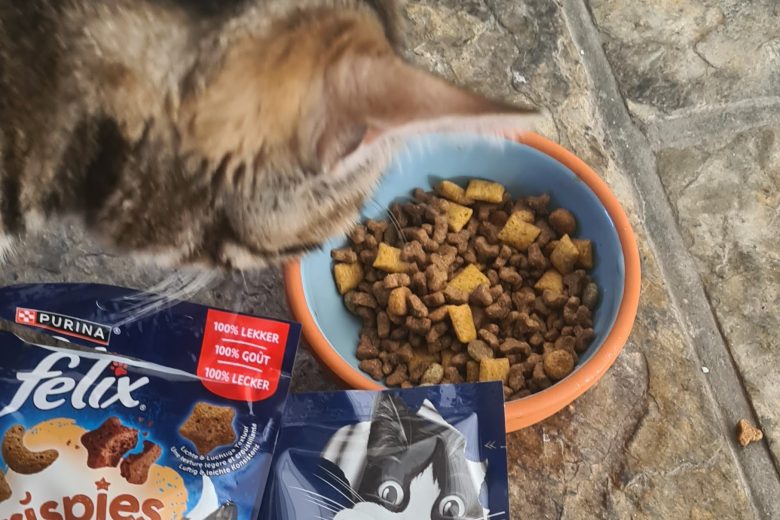Bringing a kitten into your home is a joyous occasion, filled with playful antics and adorable purrs. But along with the fun comes the responsibility of providing proper care, and nutrition is paramount. What is the best food to give to your kitten? This question is a common one among new cat parents, and for good reason. A kitten’s diet plays a crucial role in their growth, development, and overall health.
Why Kitten Nutrition Matters
Kittens grow at an incredibly rapid pace during their first year. They require a diet rich in essential nutrients to support their developing bones, muscles, immune system, and brain. Choosing the right food ensures they receive the building blocks they need for a healthy and happy life.
Understanding Kitten Nutritional Needs
Kittens have specific nutritional requirements that differ from adult cats. They need:
- High Protein: Protein is crucial for muscle development and tissue repair.
- Essential Fatty Acids: These support healthy skin, coat, and brain development.
- Calcium and Phosphorus: These minerals are vital for strong bones and teeth.
- Taurine: This essential amino acid is crucial for heart and eye health.
- Vitamins and Minerals: These support various bodily functions and immune system health.
What is the Best Food to Give to Your Kitten?
When navigating the overwhelming array of kitten food options, consider these factors:
- Kitten-Specific Formula: Look for food specifically formulated for kittens. These formulas are designed to meet their unique nutritional needs.
- High-Quality Ingredients: Choose foods with high-quality protein sources, such as chicken, fish, or lamb. Avoid foods with excessive fillers or by-products.
- Wet vs. Dry Food: Both wet and dry food have their benefits.
- Wet Food: High moisture content, which can help with hydration. Often more palatable, especially for picky eaters.
- Dry Food: Helps with dental health by reducing tartar buildup. Convenient and cost-effective.
- AAFCO Statement: Ensure the food has an AAFCO (Association of American Feed Control Officials) statement, indicating it meets nutritional standards.
- Age Appropriateness: Always check the food label to ensure it’s appropriate for your kitten’s age.
Transitioning Your Kitten’s Food
If you need to switch your kitten’s food, do so gradually to avoid digestive upset.
- Mix a small amount of the new food with the old food.
- Gradually increase the proportion of new food over 7-10 days.
- Monitor your kitten for any signs of digestive issues.
Feeding Schedule and Portion Control
Kittens need frequent meals to support their rapid growth.
- 2-3 Months: Feed kittens 4-5 small meals per day.
- 3-6 Months: Feed kittens 3-4 meals per day.
- 6-12 Months: Feed kittens 2-3 meals per day.
- Follow the feeding guidelines on the food label and adjust portions as needed.
- Avoid free-feeding, as it can lead to overeating and obesity.
What to Avoid
- Cow’s Milk: Kittens are lactose intolerant and cow’s milk can cause digestive upset.
- Human Food: Many human foods are toxic to cats, including chocolate, onions, and garlic.
- Cheap, Low-Quality Food: These foods often lack essential nutrients and contain fillers.
- Bones: Cooked bones can splinter and cause internal injuries.
Addressing Common Concerns
- “My kitten is a picky eater.” Try offering a variety of wet and dry foods to find what they like. Warm up wet food slightly to enhance its aroma.
- “My kitten has diarrhea.” This could be due to a food intolerance or infection. Consult your veterinarian.
- “My kitten is overweight.” Reduce portion sizes and increase playtime. Consult your veterinarian for guidance.
- “What is the best food to give to your kitten?” Always consult with your veterinarian. They can provide personalized recommendations based on your kitten’s individual needs.
The Importance of Hydration
Ensure your kitten has access to fresh, clean water at all times.
- Provide multiple water bowls throughout your home.
- Consider using a cat water fountain to encourage drinking.
- Wet food can also contribute to hydration.
Long-Term Health Benefits
Providing your kitten with a nutritious diet sets the foundation for a lifetime of good health. By focusing on What is the best food to give to your kitten? you are making an investment into the future of your feline companion. A well-nourished kitten is more likely to grow into a healthy, active, and happy adult cat.
Conclusion
Choosing the right kitten food can feel overwhelming, but by understanding your kitten’s nutritional needs and considering the factors outlined in this article, you can make an informed decision. Remember to consult with your veterinarian for personalized recommendations and enjoy watching your kitten thrive!
